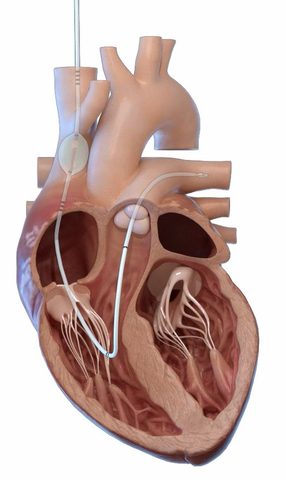Abiomed (NASDAQ: ABMD) announces the successful results of the first-in-human early feasibility study of the preCARDIA system. The preCARDIA system is designed to improve decongestion in acutely decompensated heart failure (ADHF) patients by intermittently occluding the superior vena cava. The results of the study published this week in the journal Circulation: Heart Failure.
Despite available pharmaceutical treatments, heart failure is the leading cause of hospitalization in patients older than 65 years of age. Diuretics may help to improve heart failure symptoms and heart function by reducing fluid overload. However, diuretics take time to work and may be ineffective in patients with chronic heart failure. preCARDIA is designed to reduce filling pressure as blood enters the heart and lungs, which may enable the heart and kidneys to work more effectively, potentially providing therapy for patients non-responsive to diuretics, estimated to be approximately 300,000 of the one million U.S. ADHF admissions per year.
The multicenter, prospective, single-arm VENUS-HF Early Feasibility Study examined 30 patients with ADHF who were assigned preCARDIA therapy for 12 or 24 hours. The primary endpoint was a composite of major adverse events through 30 days. The study found:
- Freedom from device- or procedure-related major adverse events in 100% of patients (n=30/30)
- Successful placement, activation and removal of preCARDIA in 97% of patients (n=29/30)
- Right atrial pressure decreased 34% from baseline (p<0.001)
- Pulmonary capillary wedge pressure decreased 27% from baseline (p<0.001)
- Urine output increased by 130% from pretreatment values (p<0.01)
- Net fluid output increased by 156% from pretreatment values (p<0.01)
“The study met the safety and feasibility endpoints and suggests for the first time that with the preCARDIA system it is possible to rapidly reduce cardiac filling pressures and augment urine output by intermittently occluding the superior vena cava in patients with ADHF,” said Navin Kapur, MD, the study’s lead author and executive director of the CardioVascular Center for Research and Innovation at Tufts Medical Center.
The results support additional study of preCARDIA. In November, the United States Food and Drug Administration (FDA) authorized preCARDIA’s early feasibility study to be expanded by 30 additional patients to a total of 60 patients.
preCARDIA is an investigational device, limited by federal law to investigational use only.
